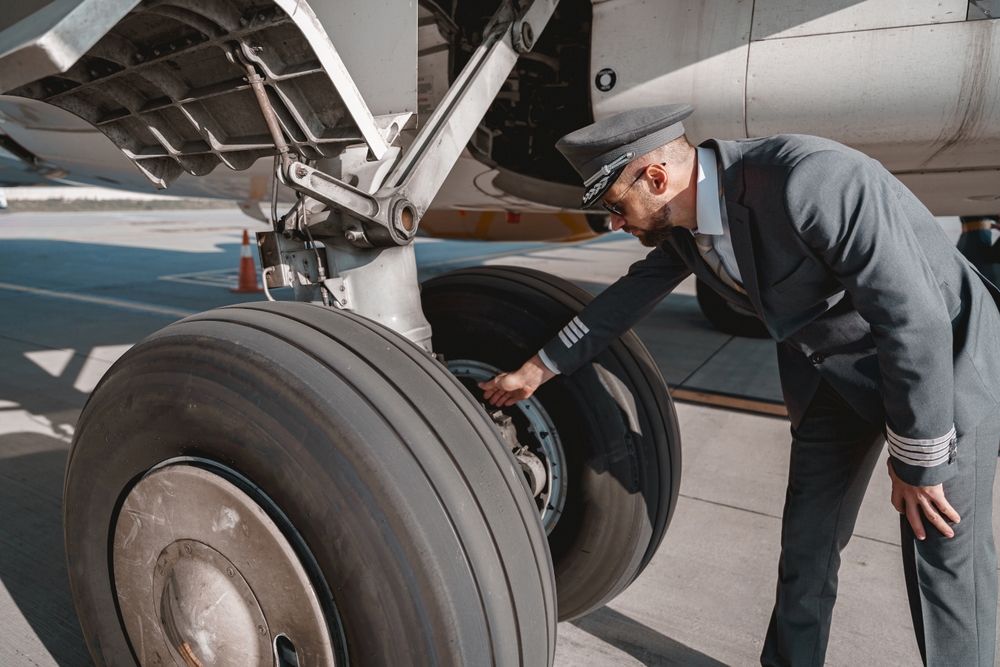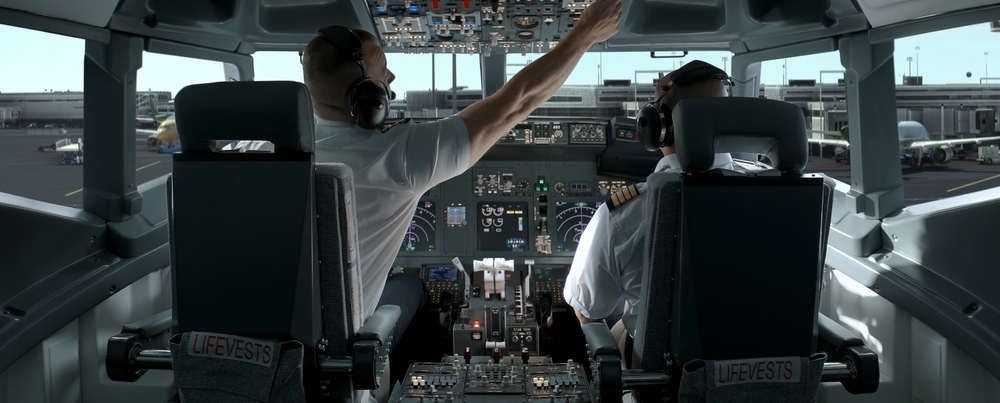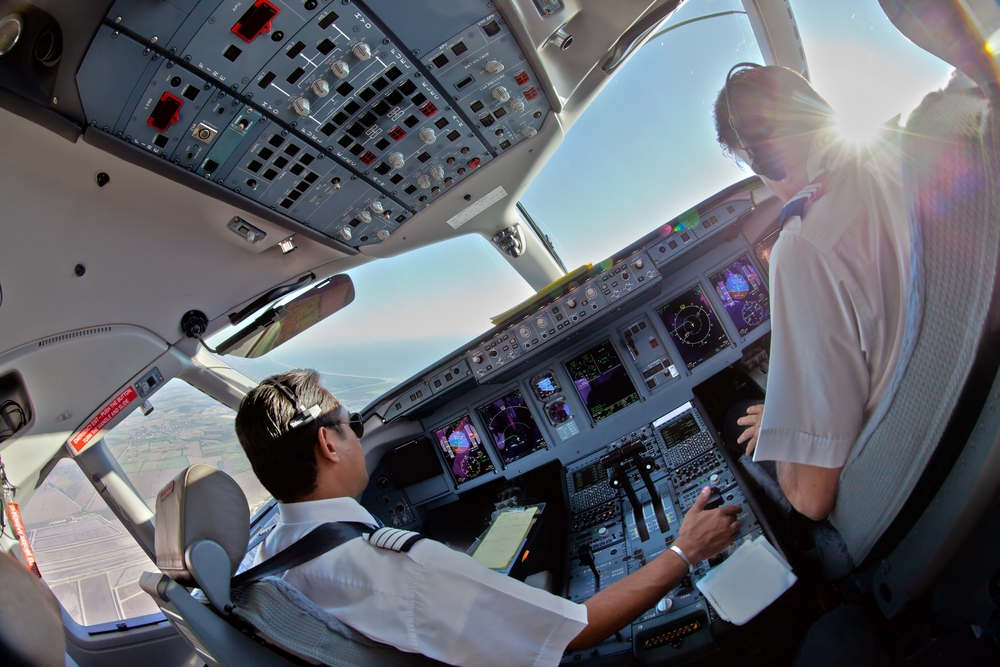Embarking on a pilot career is not only about mastering technical skills. It is also about cultivating a unique set of personal qualities and meeting numerous qualifications that set the stage for success in the skies. But what exactly does it take to soar among the clouds? What are the key personal traits and the most important qualifications a person should obtain to kick-start a pilot career?
Let’s explore the essential traits and qualifications that aspiring pilots need to navigate the exhilarating world of aviation.
Table of Contents
What are the personal qualities required to be a pilot?
From the moment they step onto the runway, pilots are always expected to embody a range of qualities that ensure successful safe flights. Airlines demand a unique blend of personal traits and characteristics from those who take their passengers to the skies. While some traits may seem trivial, others hold immense significance in shaping a pilot’s career.
Excellent decision-making and problem-solving skills. First and foremost, pilots must have excellent decision-making and problem-solving skills as they often face complex situations that require quick thinking and immediate action.
For example, Captain Chesley “Sully” Sullenberger’s remarkable decision-making during the so-called ‘Miracle on the Hudson’ incident in 2009 exemplifies this trait. When both engines of US Airways Flight 1549 failed after a bird strike, the captain quickly assessed the situation and determined that attempting to land in the Hudson River was the safest option. His swift, decisive action saved the lives of all 155 people on board.
Strong communication skills. Well-developed communication skills are also essential, as they ensure clear and efficient information exchange with air traffic controllers, crew members, and sometimes passengers. Effective communication is crucial in maintaining safety, coordinating operations, and managing emergencies.
For instance, during the emergency landing of Southwest Airlines Flight 1380 in 2018, Captain Tammie Jo Shults demonstrated exemplary communication skills. After an engine failure caused a window to break, leading to rapid cabin depressurization, she calmly communicated with air traffic control, coordinating a safe emergency landing while reassuring passengers and managing her crew.
Discipline. Discipline is another essential personal quality for flight crew, playing a critical role in maintaining the rigorous standards of aviation safety. Pilots must adhere to strict protocols and procedures, ensuring that every aspect of flight operations is conducted with precision and consistency. This includes pre-flight checks, following air traffic control instructions, and adhering to scheduled maintenance routines.
For example, during the routine operations of any commercial flight, pilots follow a comprehensive checklist to ensure that all systems are functioning correctly and that the aircraft is prepared for safe takeoff. This disciplined approach helps to prevent oversights that could lead to serious safety issues. Moreover, discipline in maintaining personal health and readiness is also vital, as pilots must meet stringent medical standards and be physically and mentally fit to handle the demands of flying.
Attention to detail, hand-eye coordination, and spatial awareness. The combination of these personal qualities ensures the safe and efficient operation of an aircraft. Attention to detail allows the flight crew to monitor instruments and detect any anomalies in the aircraft’s performance. This precision helps prevent errors that could jeopardize safety. While hand-eye coordination is essential for the manual control of the aircraft, enabling pilots to smoothly handle the yoke, throttle, and other controls, especially during takeoff, landing, and in-flight maneuvers.
Why does spatial awareness matter? It helps pilots understand their plane’s position in three-dimensional space, aiding in navigation, obstacle avoidance, and situational awareness. During complex maneuvers, like landing in bad weather or navigating busy airspace, a pilot’s ability to evaluate distances and angles precisely is vital. These skills ensure the flight crew can handle dynamic flight conditions, maintain control, and keep everyone on board safe.
Physical fitness and good health. Physical fitness and good health are not just desirable but essential requirements for pilots to effectively handle the demands of flying. The nature of piloting demands peak physical conditions to ensure that pilots can perform their duties safely and efficiently. A pilot’s daily tasks often involve prolonged periods of sitting in the cockpit, which can lead to issues like muscle fatigue and poor circulation. Maintaining good health through regular exercise and a balanced diet helps mitigate these risks, ensuring that pilots remain alert and focused throughout their flights.
Physical fitness is crucial for emergencies that may require swift action and physical exertion. In the event of an evacuation, pilots may need to assist passengers in exiting the aircraft quickly and safely. Being in good physical shape helps flight crew members handle such scenarios with agility and strength, potentially saving lives in critical situations.

What qualifications does a pilot need?
Before you can soar among the clouds, you will need to meet some pretty cool qualifications that set you on the path to becoming a true sky conqueror. Below, you will discover the essential qualifications every pilot needs to embrace the skies with confidence.
- Educational Requirements. While a high school diploma or its equivalent is the baseline, there is a reason why some airlines or flight schools lean towards candidates with a bachelor’s degree, particularly in aviation-related fields. Aviation is a complex and dynamic industry where a deep understanding of subjects like physics, mathematics, and engineering can greatly enhance a pilot’s ability to navigate challenges in the air. A higher level of education not only demonstrates a candidate’s commitment and dedication but also equips them with critical thinking skills and a broader perspective that can prove invaluable in the cockpit.
- Flight Training. Flight training is the heart of a pilot’s preparation, providing the hands-on experience and theoretical knowledge necessary to navigate the skies with confidence and skill. Whether through an accredited flight school or under the guidance of a certified flight instructor, this training is essential for several reasons. Firstly, the ground school lays the groundwork, teaching the theoretical understanding of aerodynamics, aircraft systems, meteorology, navigation, and regulations. It is where aspiring pilots, or so-called cadets, learn the principles that govern flight, ensuring they have a solid foundation before taking to the air. Practical flight training comes after passing a theoretical exam and is where what you have learned in theory gets put into practice. Under the watchful eye of experienced instructors, students learn to apply their knowledge in real-world scenarios, mastering essential maneuvers, emergency procedures, and navigation techniques.
- Pilot license. Obtaining a pilot license is another fundamental qualification. This could include a Private Pilot License (PPL), Commercial Pilot License (CPL), or Airline Transport Pilot License (ATPL), depending on your career goals. Each license represents a progression in skills and responsibilities, with the PPL providing the foundation for recreational flying, the CPL opening doors to commercial opportunities, and the ATPL marking the pinnacle for those aiming for command positions in commercial aviation. Obtaining a pilot license is not just about meeting regulatory requirements, it proves your dedication, proficiency, and passion.
- Medical certification. Medical certification is a vital requirement for pilots, ensuring they meet rigorous physical and mental health standards essential for safe flying. Conducted by aviation medical examiners, these examinations assess various factors to guarantee pilots’ fitness for duty, ultimately enhancing safety for all aboard the aircraft.
- Instrument rating. An instrument rating is a pivotal qualification for commercial pilots, dedicated to ensuring safe operation under adverse weather conditions. With this rating in hand, pilots become skilled at operating the aircraft using only the instruments inside the cockpit, even when they encounter limitations in external visibility. This capability not only enhances safety but also enables pilots to maintain flight schedules even when faced with severe weather.
- Multi-engine rating. Depending on the type of aircraft to be flown, pilots may need a multi-engine rating to operate aircraft with more than one engine. This additional certification ensures that pilots are proficient in handling the complexities and nuances associated with multi-engine aircraft. By obtaining such a rating, the pilots demonstrate their ability to effectively manage the increased power, performance, and aircraft systems. This qualification expands the scope of aircraft that pilots can operate, opening up opportunities for career advancement and specialization in various aviation companies.
- Type rating. A type rating is necessary for every pilot intending to fly a specific aircraft type. This certification goes beyond the general qualifications, providing an aviator with in-depth training tailored to the intricacies of a particular aircraft model. With a type rating, pilots become intimately familiar with the unique systems, controls, and performance characteristics of the aircraft they intend to fly, enabling them to operate it safely and efficiently. This level of operating expertise further enhances a pilot’s versatility and career opportunities.
- Language Proficiency. Proficiency in the English language as it serves as the universal language of aviation, ensuring seamless communication between all personnel involved in an aircraft operation. During international flights or when communicating with air traffic control in different countries, pilots must rely on English to convey critical information accurately and efficiently. Clear and concise communication helps flight crew navigate complex airspace, follow instructions, and respond swiftly to emergencies. Proficiency in English is not only a regulatory requirement but also a fundamental skill that enables pilots to fulfill their duties competently and ensure the safety of everyone on board.
Why is language proficiency so important, you may ask? During the infamous Tenerife airport disaster in 1977, miscommunication played a significant role in the tragic collision between two Boeing 747 aircraft. While the primary cause of the accident was the dense fog enveloping the runway, language proficiency issues exacerbated the confusion. The KLM flight crew, who were primarily Dutch speakers, misunderstood critical instructions from the air traffic controllers, who were communicating in English. This misunderstanding led to the KLM aircraft initiating takeoff without proper clearance, resulting in a collision with a taxiing Pan Am aircraft. This devastating incident underscores the importance of language proficiency in aviation communication, as clear and accurate communication in English could have potentially prevented the catastrophic outcome.
- Clear Background Check. Clear background checks are essential for pilots to ensure they meet the stringent character and security standards set by aviation authorities. A background check can reveal any criminal history, ensuring that individuals with a history of violence or unlawful behavior are not entrusted with the responsibility of flying a plane.
One real-life example highlighting the importance of background checks is the case of EgyptAir Flight 990 in 1999. Investigations into the crash revealed that the relief first officer had a troubled personal history, including disciplinary issues and conflicts with colleagues. While the crash was ultimately attributed to deliberate action by the relief first officer, a thorough background check may have raised red flags about his suitability for the position, potentially preventing the tragedy.

The path to becoming a pilot is as much about personal growth as it is about mastering technical skills and meeting qualifications. By building essential qualities like decision-making, communication, discipline, and physical fitness, aspiring pilots can navigate the skies with confidence and ensure the safety of everyone on board. Coupled with rigorous qualifications and adherence to safety protocols, these qualities form the bedrock of a successful and fulfilling career in aviation – a career where the sky is truly the limit!

